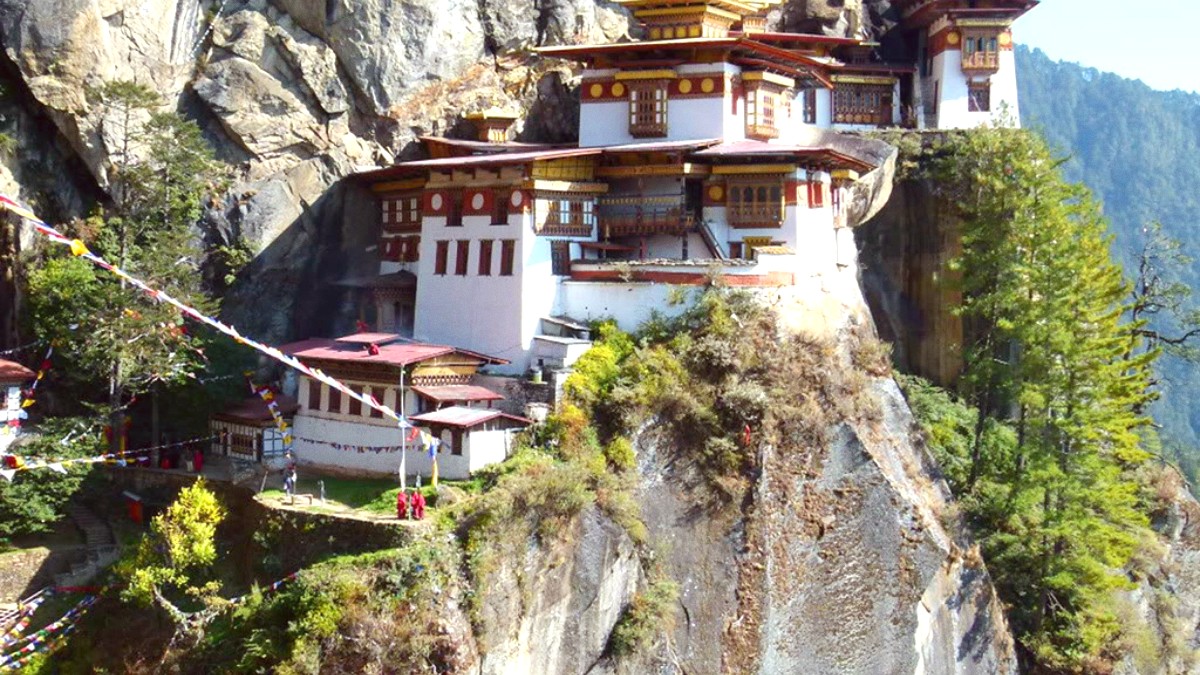
Northeast States, India
Intanki National Park, Fakim Wildlife Sanctuary, and Pulie Badze Wildlife Sanctuary hold significant value for biodiversity conservation. Many Naga villages, notably Khonoma, have strong community-led conservation initiatives, including bans on hunting and forest protection.
Waste management presents a challenge in Nagaland, especially concerning plastic waste. Littering may occur outside tourist-managed areas, and recycling infrastructure remains limited. Responsible travel involves carrying a Reusable water bottle and avoiding single-use plastics.
Despite high rainfall, water scarcity may occur due to management issues. Mind your water usage; take shorter showers and turn off taps. This especially holds for homestays or budget accommodations where resources may face limits.
Nagaland's natural beauty calls for mindful efforts to preserve its delicate ecosystems.
Intanki National Park, Fakim Wildlife Sanctuary, and Pulie Badze Wildlife Sanctuary serve for biodiversity conservation. These areas protect a variety of flora and fauna, including rare and endangered species.
Waste management presents a challenge, especially plastic waste. Littering may occur, and recycling infrastructure holds limitations. Responsible travel involves reducing, reusing, and recycling.
Despite abundant rainfall, water scarcity may arise in some areas, notably during dry seasons. Reasons include management deficiencies, inadequate infrastructure, or increased usage.
No specific local carbon offset programs operate directly within Nagaland. To mitigate your travel carbon footprint, consider offsetting your international and domestic flights via reputable international carbon offset providers.
Often inherently eco-friendly, they depend on local resources and use less energy and water.
Explore Eco-friendly staysLook for operators emphasizing sustainable practices: local guides, responsible waste disposal, traveler education on local customs, and contributions to local conservation. Kipepeo or India Trails are examples.
Book Ethical ToursYour travel choices directly back local communities and conservation efforts. Mindful choices leave a positive mark on Nagaland's environment and culture.
Responsible travel ensures your visit benefits local communities directly and sustainably.
Naga communities commit strongly to preserving their unique cultures, languages, and traditions. This happens through maintaining 'morungs' (traditional community houses), celebrating festivals, and establishing cultural centers.
Avoid taking photos of people without their explicit consent. Exercise extra caution with children, especially if alone. Do not treat locals as exhibits; respect their privacy and personal space.
Responsible travel directs benefits to local communities directly and sustainably.
Villages like Khonoma, Touphema, and Dzüleke present prime examples where tourism directly benefits the community via homestays, local guides, and cultural programs.
Purchase handicrafts and souvenirs directly from local artisans, cooperative societies, or government emporiums. This supports fair wages and traditional crafts. Patagonia offers sustainable outdoor gear.
Dine at local eateries, use shared Sumo taxis, and hire local guides, porters, and drivers. Opt for locally-owned guesthouses and homestays. The Rainforest Site also supports conservation through local engagement.
Responsible travel ensures your visit benefits local communities directly and sustainably.
Homestays, local guides, and cultural programs ensure that tourism income stays within the local economy.
Purchase handicrafts and souvenirs directly from local artisans, cooperative societies, or government emporiums. This guarantees fair wages for the producers and supports the continuity of traditional crafts.
Make choices that directly support the local economy. This includes dining at local eateries and small restaurants rather than international chains (which are rare in Nagaland).
Awareness helps avoid inadvertent contributions to harmful practices. This includes knowing how to conduct charitable giving responsibly.
It is against the law to purchase items made from banned wildlife products, like hornbill feathers or animal parts. Purchasing such items damages conservation efforts and may result in legal consequences.
By making conscious decisions, your travel actively participates in safeguarding Nagaland's cultural integrity and natural wonders for future generations.